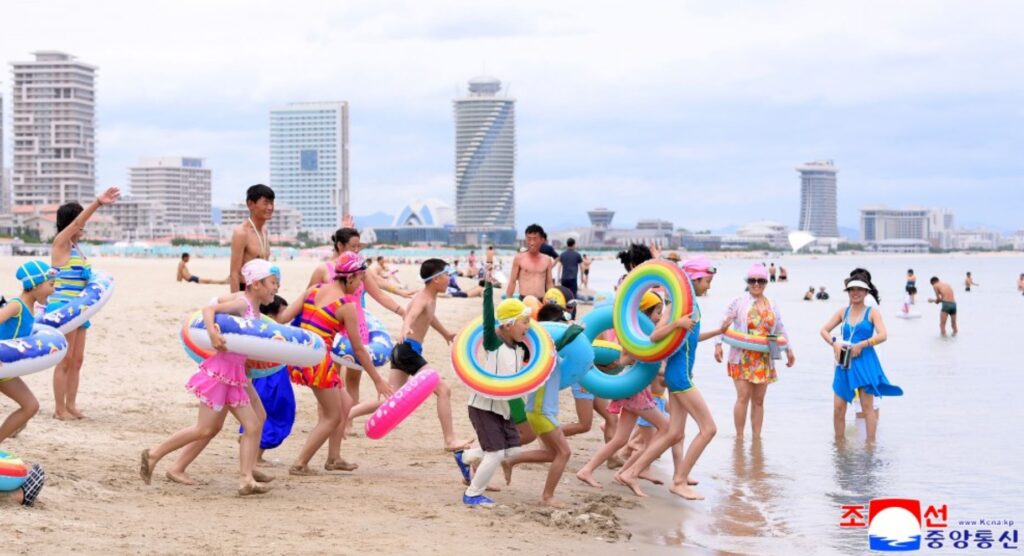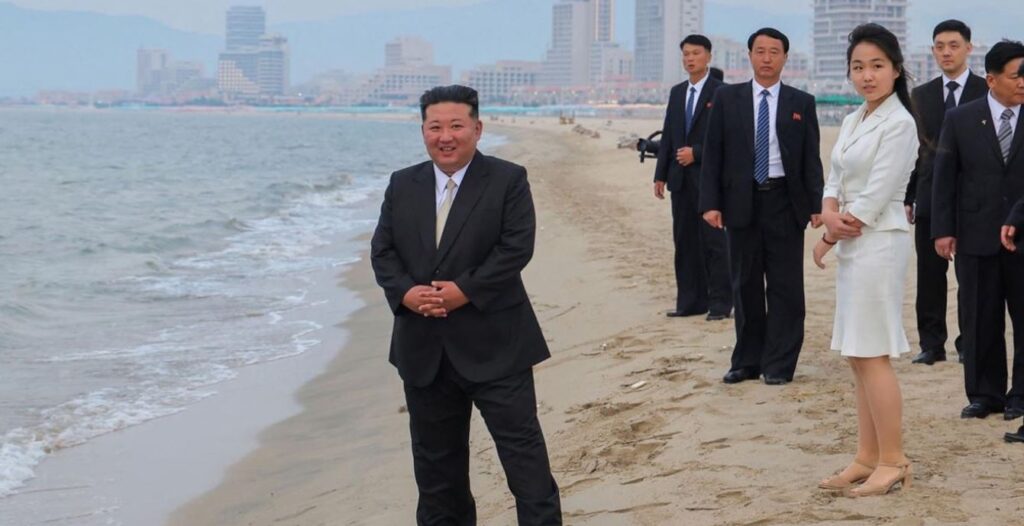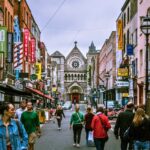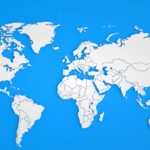Westerners mostly think of North Korea as the most closed-off and mysterious place on Earth. They see it as a country where tourism is tightly controlled, outside media is banned, and even basic internet access doesn’t exist. So when the regime announced the launch of the Wonsan‑Kalma Coastal Tourist Zone, complete with things ranging from white-sand beaches to luxury hotels to water parks, the world was understandably surprised. It sounded less like North Korea and more like something you’d expect to see in Dubai or the French Riviera.
Honestly, the idea of sipping coconut water on a North Korean beach while palm trees sway nearby feels so far removed from what we usually hear about the country (famine, censorship, missiles) that many people didn’t even believe it at first. But Wonsan‑Kalma is real. Gleaming buildings, fancy lobbies, curated beachfronts… all part of the North Korean government’s latest attempt to project a new image to the world. And to me, this new image is basically saying to the world, “We’re open for business. We’re modern. We can do luxury too.”
The only question is… who exactly is this luxury built for?
A Grand Opening
The Wonsan-Kalma Coastal Tourist Zone officially opened its doors on July 1, 2025, but not with the usual international fanfare. Instead, it was a carefully staged event primarily for North Korea’s domestic elite and state-run cameras. The visuals were polished and the message was clear: North Korea is modern, happy, and peaceful.
Kim Jong Un himself was reportedly involved in the project from the very beginning, pushing for its completion despite international sanctions. At the opening, he praised the resort as one of 2025’s greatest achievements of his country. He also called it a symbol of what the country could achieve under his leadership.
But even before the dust could settle on opening day, there was already a twist.
On July 11, less than two weeks later, North Korea hosted a small VIP delegation of Russian guests, including none other than Russia’s Foreign Minister Sergey Lavrov. The visit was meant to showcase the resort’s readiness for high-profile international visitors. According to Russian state media and firsthand accounts, the guests were treated to sumptuous 10-dish meals, attentive service, and picture-perfect views of the coastline.
One Russian tourist reportedly said the service was so smooth, it felt like the country had been a master in the hospitality niche. But just a few days after the Russian visit, the government made another surprise move. They suddenly banned all foreign tourists from visiting the resort. No official reason was given, and the shutdown came as quickly and quietly as the grand opening itself.
Experts believe the decision was a reaction to a critical Russian media report, which suggested that some of the cheerful “tourists” shown in press footage were not real guests, but carefully selected North Korean locals dressed up to look like visitors.

VIP Guests Over Visitors
While Wonsan-Kalma was branded as a luxurious coastal retreat, the list of real international visitors has been extremely limited, and carefully selected. The most high-profile group so far has been a handpicked delegation of Russian VIPs who arrived around July 11, 2025, just days after the resort’s official opening.
Photos released by North Korean state media and Russian outlets showed smiling guests lounging on sunbeds, exploring the beach, and dining on extravagant multi-course meals. One Russian visitor described the food as a total “royal feast” with 10 dishes served at each meal, attentive staff at every corner, and hotel rooms that were “clean, well-furnished, and surprisingly modern”.
But even that visit didn’t fully reassure the international community. Reports emerged that many of the people posing as tourists in the photos were actually North Koreans (likely government-approved locals) dressed and briefed to act like guests for the cameras. Some observers believe this entire event was carefully choreographed, not to promote actual tourism, but to create an illusion of openness and success. But is that really true? I guess only time will tell.
Regarding the Russians, their visit was likely both diplomatic and strategic. North Korea and Russia have been strengthening ties in recent years, and this kind of invitation fits neatly into that political dance. Moscow praised the resort, likely recognizing its symbolic value, but also quietly acknowledged the limitations behind the scenes.
It should be noted that as of the writing of this article, no Westerners have been allowed in.
Tourism and the Balancing Act
North Korea, like any country, understands the value of tourism. It’s one of the easiest and fastest ways to bring in hard currency, create jobs, and boost local economies. The Wonsan-Kalma Beach Resort clearly has that potential. This resort is built to impress, and there’s no doubt the government hopes it can one day attract paying visitors from abroad.
But it’s a tricky balance. Allowing more foreigners in means opening the door (even just a little) to outside influences, different perspectives, and global attention. And for a country that prefers to manage its image carefully, that’s a big risk. That’s why most experts believe North Korea will keep things very controlled.
We might see small bursts of access, like what happened with the Russian visitors, but full international tourism? That might still be a long way off. Still, from a traveler’s perspective, it’s always interesting to see how countries like North Korea begin to experiment with tourism.
Images via KCNA


